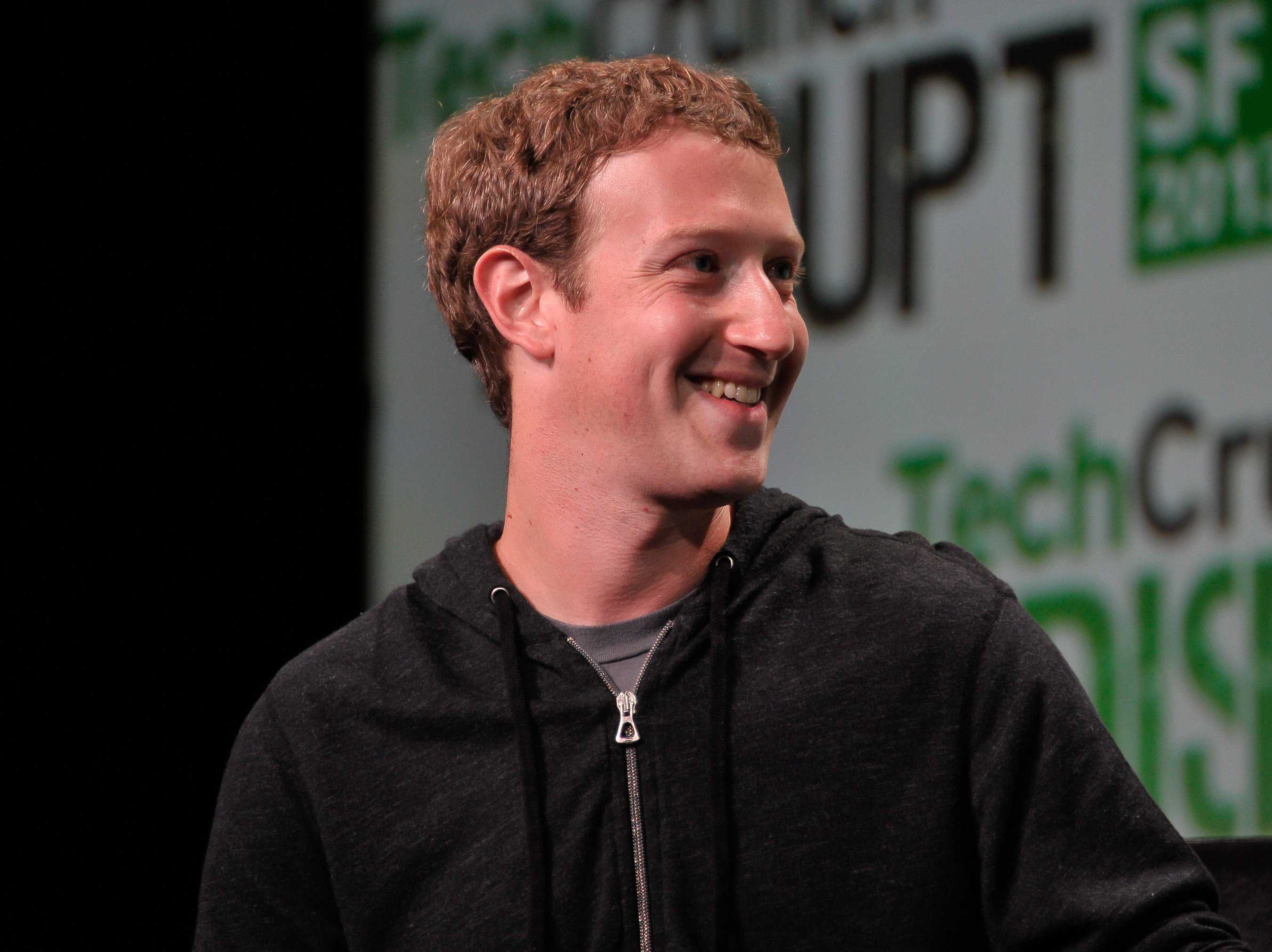 Zuckie has done it again! With Facebook’s latest crazy acquisition—$2 billion in cash and stock for a virtual-reality goggles startup that has neither revenue nor even customers—it is now official: There isn’t a stock-market bubble, but Facebook itself is a bubble. Mark Zuckerberg’s buying binge looks like a disjointed food-fight strategy funded by Monopoly money: its own stock.
Zuckie has done it again! With Facebook’s latest crazy acquisition—$2 billion in cash and stock for a virtual-reality goggles startup that has neither revenue nor even customers—it is now official: There isn’t a stock-market bubble, but Facebook itself is a bubble. Mark Zuckerberg’s buying binge looks like a disjointed food-fight strategy funded by Monopoly money: its own stock.
FB went out at an opening price of $38 in May 2012, fell to $18 by August that year but now is humming along mightily in the $60 range (though the stock is taking a hit today). That lofty rebound can make a company cocky and silence any doubters. So let me be among the unimaginative first to argue that this Emperor has no hoodie. Chances are that Facebook will never earn back its investment on this panoply of plucky upstarts.
It would be nice if the payback calculation had some overarching or underlying strategy that ties it all together under that now-familiar Facebook mission statement to unite the entire world online. For now, Wall Street is giving Zuckerberg, the Facebook CEO, the benefit of the doubt.
But I can’t see it. Yes, the $1 billion for Instagram, which Zuckerberg personally sealed over a weekend before taking his company public, made sense as an extension of his social platform. But a ridiculous $19 billion for WhatsApp, a texting service, when texting has been around for two decades? (Note: just fixed figure from wrong $16B; the 9 had turned upside down.)
It’s where the kids are headed, is the explanation you hear. But Facebook is, at bottom, an advertising company, and sponsors want to reach grown-ups with money to spend, not teenagers dependent on Mom and Dad.
And now $2B—twice the price paid for Instagram, which now has quintupled to 150 million users since Facebook bought it in 2011—for Oculus VR, the googles startup? How does virtual reality help link Facebook users, much less help the company sell more ads and more products? Amazon has racked up $75 billion in annual sales online without needing fancy VR goggles to make us buy more stuff.
The real driver in the $20 billion acquisition binge in just the past two years seems to be Zuckerberg’s own whimsy. Like a spoiled rich kid in a candy shop, he buys whatever looks good. Look at his own hypey fanboy statement on Oculus: “Imagine enjoying a courtside seat at a game, studying in a classroom of students and teachers all over the world or consulting with a doctor face-to-face-just by putting on goggles in your home.”
Yes, imagine away—I’d bet most of that pretty much never happens, at least, not on any schedule that would offer acceptable returns on Facebook’s $2 billion bet.
Tech guys suffer from the same approach that determines why a dog licks itself: They do it because they can. In the techie mind, the capability is all that matters—not whether the NBA ever would dare crush its own gate receipts by allowing Facebook to go virtual with its games; or whether Harvard would stop short of cannibalizing its own campus with goggles-classes; or whether doctors, assiduously and obstinately Luddite, would ever adopt this futuristic interface.
But why worry about that? For some darlings of Wall Street, the supposed vision is enough. Look at all the great buzz Google gets for its work on the driverless car and Google Glass, neither of which has helped it sell a single ad. And advertising provides pretty much all of Google’s $60 billion a year in revenue.
Put aside any alleged vision for moment, and let’s run a fast calculation: At $19 billion for WhatsApp, which has no real revenue stream, Facebook instead could have put the money in 10-year Treasurys. At 2.7% annual interest over 10 years, Facebook would earn a yearly payback of $513 million. That would add up to $5.1 billion plus the entire $16B to be paid back to Facebook at the end of the 10-year period.
WhatsApp, because it entails far higher risk than a 10-year Treasury, should pay far higher returns—yet I’d bet it will be years before that property comes even close to $500 million in annual profits.
Now comes Oculus, the latest Great Hype Hope for virtual reality, which has been touted as the Next Big Thing for three decades. How is this product in any way related to the core of what Facebook does best? Facebook is a social-network platform, it isn’t a consumer-electronics maker; if it were, its stock would have a far lower valuation. See Sony.
In 10-year Treasurys, the $2 billion to be paid for Oculus would earn $54 million a year in interest for 10 years, adding up to over half a billion dollars plus the $2B in principal.
How long will it be before Oculus can clear $50 million a year in profit and return $2.5 billion to Facebook? When it has no commercial product and hopes to sell goggles at $350 or more per pair? And when profit margins in the high-tech hardware market start out razor-thin and shrink from there?
My forecast: um, how about never?